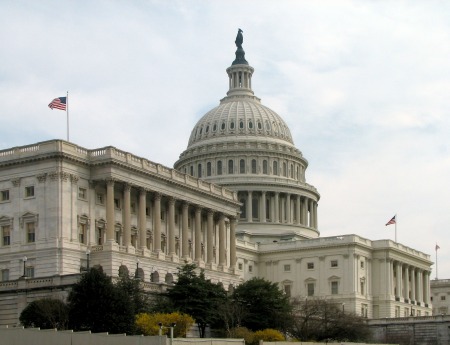Bennett to Hill: Paid Prioritization Does Not Necessarily Mean Degradation

The smarter way to stay on top of the multichannel video marketplace. Sign up below.
You are now subscribed
Your newsletter sign-up was successful
The FCC's now-eliminated presumptive ban on paid prioritization was the "most troubling" part of the FCC's 2015 Open Internet order because it was based in a false premise.
That is according to Richard Bennett, founder of High Tech Forum for Tuesday's (April 17) house Communications Subcommittee informational hearing on the practice.
Paid prioritization is the major sticking point in potential legislation to establish new net neutrality rules both sides of the political aisle and the debate--activists vs. industry--might be able to live with.
Bennett says it is a popular misconception--and certainly a conception popular with net neutrality groups--that paid prioritization (or "optimization," as Bennett calls it) "Perceptibly degrade traditional applications such as video
streaming, the web, or email." He said that is because "traditional applications" have a high tolerance for variations in the speed of delivery because of buffering, meaning one applications fast lane does not necessarily another's slow one.
He says ISPs are in the best position to identify the requirements of the packets they deliver--and activists concede network management is needed. But Bennett says the best way to identify the needs of those packets, and preserve privacy, is to "allow application developers to register applications requiring special treatment, and even to pay for such treatment in some circumstances."
Bennett also argues that the speed at which a Web page now loads is mostly in the control of the Web page owners--the Google's and Amazons and Facebooks, pointing out that while the average speed of broadband networks has increased 35% per year for a decade, Web performance has remained stagnant and even went down in 2016.
The smarter way to stay on top of the multichannel video marketplace. Sign up below.
INCOMPAS to Hill: Paid Prioritization Must Be Off Limits
But activist arguments go beyond what they can do to what they would do, saying that without rules ISPs could perceptibly degrade traffic even if they did not have to for network management purposes and the government would have to catch them and take action for anticompetitive conduct if that could be proved.
Bennett concludes that the best approach to promoting innovative services is "when they are able to purchase the network services they need without undertaking the breathtaking expense of building the networks of data centers owned by the five largest US firms."
He says a "generally permissive approach to the design and sale of innovative network services–with proper oversight by well-informed regulators–is the best way forward for the Internet."
That is basically the ISP's and Ajit Pai FCC's argument that it is anticompetitive paid prioritization that should be discouraged, either through FTC or Justice Department enforcement against anticompetitive practices, or perhaps via legislation.
Ranking Committee member Mike Doyle (R-Pa.), registered a complaint with Bennett's testimony, saying Bennett had made last-minute changes to his written testimony that lead Doyle to question whether that testimony was credible.
Contributing editor John Eggerton has been an editor and/or writer on media regulation, legislation and policy for over four decades, including covering the FCC, FTC, Congress, the major media trade associations, and the federal courts. In addition to Multichannel News and Broadcasting + Cable, his work has appeared in Radio World, TV Technology, TV Fax, This Week in Consumer Electronics, Variety and the Encyclopedia Britannica.

